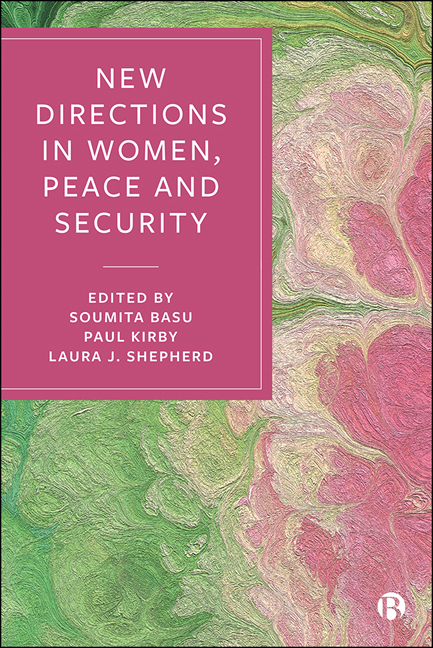1 - Women, Peace and Security: A Critical Cartography
Published online by Cambridge University Press: 12 March 2021
Summary
The Women, Peace and Security (WPS) agenda, associated with the United Nations Security Council resolutions of a similar name, is widely recognized as the most significant and wide-reaching global framework for advancing gender equality in military affairs, conflict resolution and security governance. The first of these resolutions, UN Security Council Resolution (UNSCR) 1325, bound the international community to ensure, among other provisions, greater participation of women in decision making in national, regional and international institutions; their further involvement in peacekeeping, field operations, mission consultation and peace negotiations; increased funds and other support to the gender work of UN entities; enhanced state commitments to the human rights of women and girls and the protection of those rights under international law; the introduction of special measures against sexual violence in armed conflict; and due consideration to the experiences and needs of women and girls in humanitarian, refugee, disarmament and postconflict settings. As such, it was a ground-breaking commitment by the Security Council, the intergovernmental body charged with maintenance of international peace and security and widely regarded as a bastion of masculinized power and privilege (see Cohn, 2008), to acknowledge the significance of gender dynamics in active conflict situations and in peace and security governance. Nine subsequent resolutions, focused on varying themes and mechanisms, have been added to the agenda since then (the resolutions are summarized on p. xx of this volume).
In the 20 years since the passage of the foundational resolution, academics, advocates and independent analysts have produced a significant volume of scholarship on the WPS agenda. This literature has sought to justify the aims of the agenda through research on various aspects of women's vulnerability and women's agency; innovated metrics of progress on the agenda's multiple goals; assessed the nature of its implementation in diverse parts of the world; proposed modifications to policy; and occasionally sounded a dissonant note in critiquing the international politics of WPS. More recently, attention has been drawn to new themes, such as the intersections between countering violent extremism and WPS, the invisibility of race and sexuality in WPS discourse and practice, and the engagement of men within and alongside WPS.
- Type
- Chapter
- Information
- New Directions in Women, Peace and Security , pp. 1 - 26Publisher: Bristol University PressPrint publication year: 2020

